
For ten years, Mrs. Sharada Newa has been a member of Shanti Women Center in Gadavari VDC. In the beginning, she used to make candles, however, due to the lack of a market, she was struggling to succeed. Determined to have a business that was profitable, Sharada underwent the seasonal and off-seasonal vegetable farmer training, and after that she started tomato farming. For many women, tomatoes and mushrooms can be the most profitable part of their farming operation.
Up until recently, Sharada barely earned Rs. 5,000 (Five Thousands) per month, but now, thanks in part to the training she has been able to sell Rs. 2500 (Two thousand five hundred) worth of tomato per day. As a result, after incurring the expenditure, she has been able to save Rs. 25,000 (Twenty Five thousands) per month and she has hired two local laborers to help her on the farming.
Sharada has really focused on implementing what she learned from the farmer skills training but soon found she wanted to expand and become more commercial, but needed extra capital to do so. As her own investment of Rs. 50,000(Fifty thousands) was not a sufficient investment, she took out a loan of Rs. 120,000 (One Hundred and twenty thousands) from WCS which was made up of a general loan of Rs one hundred thousand for construction of new tomatoes tunnels and a seasonal loan of Rs. 20,000 (Twenty thousands) for buying improvised seeds. Without this significant investment as well as a repayment plan, Sharada would never have been able to expand her business into a commercial operation. She really feels grateful to Shenpen/C.H.A.N.C.E (U.K) and WCS for the support which has contributed for her economic progress.
Mrs. Nanu Shrestha is a resident of Okhal village and is proud to say she is now a successful farmer. But to get there, Nanu says she has done some very hard labor. In the beginning, she ran a small grocery shop but found the business was eventually floundering because the margins were too small to make a significant living.
Nanu wanted to start into farming, but found the initial capital investment was too high for her to collect or borrow on her own, so she gathered together 25 women to form a savings group. Each woman of the group invested Rs. 15,000 (Fifteen thousands) and she further invested Rs 100,000 (One hundred thousands) to start into group farming. With the group’s money, Nanu leased 10 ropani of land for vegetable farming (approximately 1/3 hectare). But before she could begin growing, Nanu completed elementary seasonal and off –seasonal vegetable farming training before starting the vegetable farming.
Many vegetable farmers cite that they still use ‘old man methods’, or traditional farming methods that are much more inefficient than those practices learned at the training. Without the training from WCS, many women like Nanu find it hard to start into their own farm operation.
This was four years ago, and since then, Nanu has started handling the whole vegetable farm alone, along with the support of other family members. Out of the 25 group members, some women left the group because of employment in other sectors and some left the group because of migration to another area for family or better opportunities.
Since the training, Nanu says she is able to identify disease in the vegetable plants and proper methods to control it. She has also learned about new technology especially in off-seasonal vegetable farming which expands their growing season when the market prices are higher. She also learned about preparing fertilizer, nursery management, and seeding transplant, which yields stronger plants. As a result, the production volume and quality of her vegetable crop has increased.
Nanu has four tomato tunnels and 7 ropani of land and has hired 2 laborers. She has seen the results of implementing what she has learned, and feels confident enough to share her knowledge with other farmers.
Running her own successful business means Nanu maintains her household expenses, provides good education to two children and is even able to save up to Rs. 250,000 (Two hundred and fifty thousands) per annum. To be successful, Nanu finds her days are long, devoting as much as ten or twelve hours a day to her farm, which can also include a lot of time spent carrying vegetables to the market. Most recently she was able to negotiate with the grocery shopkeeper she sells to, and he has now started to come directly to her vegetable farm.
Nanu says she will be doing a further 3 months agriculture training from Council for Technical Education and Vocational Training (CTEVT).
Thank you
Follow us on face book: https://www.facebook.com/rangjungyesheshenpen?ref=hl

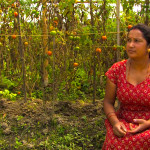
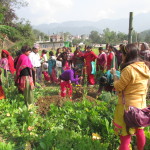
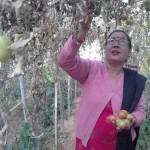
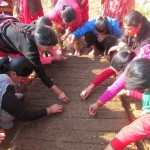
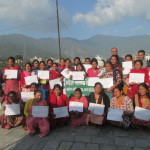
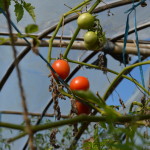
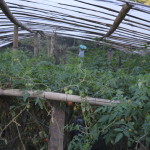
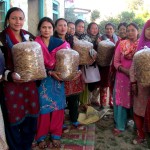











0